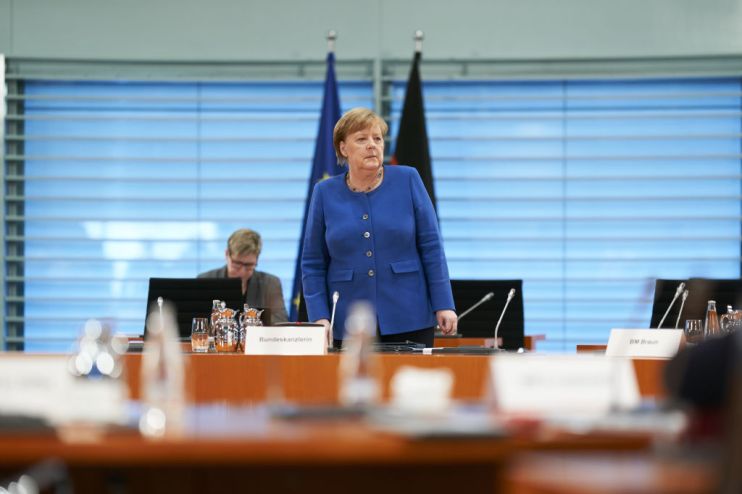Economists: Germany must act as it ‘speeds’ towards coronavirus recession

Germany, the European Union and the European Central Bank (ECB) must work together to take “massive and targeted” measures to prevent an economic collapse in the face of coronavirus, one of the country’s top think tanks has said.
The Ifo Institute warned the German economy could shrink by a massive six per cent in 2020 as its closely watched business survey index dropped to its lowest level since the depths of the financial crisis.
Ifo’s business climate index fell from 96 in February to 87.7 in march, its lowest level since August 2009. “Companies’ expectations in particular have darkened as never before,” Ifo president Clemens Fuest said.
Eurozone economies are bracing themselves for a huge hit driven by coronavirus containment efforts, which have locked down whole countries and shuttered businesses.
Fuest said that “forecasts about how deep the recession will be are currently subject to extremely high uncertainty”.
He said the best-case scenario would be a previously unthinkable 1.5 per cent fall in German GDP. A worse scenario could cause Europe’s biggest economy to contract six per cent.
Confidence plunged in Germany’s manufacturing sector, which was already struggling after a torrid 2019. “Never in the history of a reunified Germany has it fallen so far,” said Fuest.
The German government has so far pledged up to €500bn (£468bn) of loans for businesses and said coronavirus-hit firms can defer tax payments. It has also expanded a scheme to subsidise workers who are laid off, which held up employment levels during the financial crisis.
The ECB yesterday launched a huge €750bn bond-buying scheme to support the Eurozone economy which has lifted European stocks this morning.
However, Ifo said Germany needs to go further and that the European Union must work more closely.
“No one knows exactly how the cancellations and closures will affect the economy. The impact is heavily dependent on further measures to contain the epidemic and decisions made in other countries,” Fuest said.
“It is therefore all the more important that the German government, the EU, and the European Central Bank (ECB) take massive and targeted countermeasures.”
Ifo’s head of forecasts Timo Wollmershauser said the government should suspend tax payments for small and medium-sized businesses and self-employed people.
“There is an urgent need for additional support to be given to employees and the self employed who are losing their income,” he added.
“Liquidity assistance and state guarantees could avert a wave of insolvencies. The rules of insolvency law should be temporarily relaxed.”